Feature
Senate introduced 742 bills in two years, 58 passed
Published
3 years agoon
By
News Editor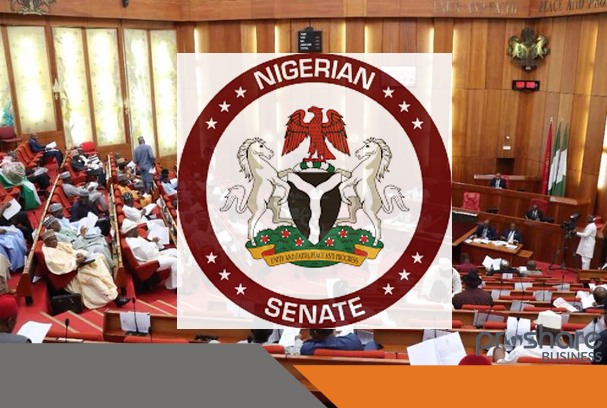
Senators score 9th Assembly high in mid-term assessment
…Senate adjourns till June 22, 2021
Senators belonging to the majority All Progressives Congress (APC) and minority Peoples’ Democratic Party (PDP) have scored the ninth Assembly high during Wednesday’s mid-term assessment of its performance in the last two years.
The lawmakers numbering thirty, who took turns to speak during a special session to mark the second year anniversary of the 9th Senate, lauded the numerous legislative interventions of the National Assembly, particularly in the areas of security, economy and governance.
Among the lawmakers are: the Senate Leader, Yahaya Abdullahi (APC, Kebbi), Deputy Leader, Ajayi Boroffice (APC, Ondo), Deputy Whip, Aliyu Sabi Abdullahi (APC, Niger), Adamu Aliero (APC, Kebbi), Yahaya Oloriegbe (APC, Kwara), Gabriel Suswam (PDP, Benue), Chukwuka Utazi (PDP, Enugu), Solomon Okamilekan Adeola (APC, Lagos), Olubunmi Adetumbi (APC, Ekiti), Ibikunle Amosun (APC, Ogun), Suleiman Sadiq Umar (APC, Kwara).
Others include: Biobarakuma Degi-Eremienyo (APC, Bayelsa), Nicholas Tofowomo (PDP, Ondo), Istifanus Gyang (PDP, Plateau), Sam Egwu (PDP, Ebonyi), Teslim Folarin (APC, Oyo), Nora Daduut (APC, Plateau), Jibrin Isah (APC, Kogi), Abdullahi Adamu (APC, Nasarawa), and Francis Fadahunsi (PDP, Osun), amongst others.
Taking the lead, the Senate President, Ahmad Lawan, in a speech delivered during the special session, said a total of 742 bill were introduced by the ninth Senate in the last two years.
According to him, out of the total number of bills introduced during the two sessions of the Assembly, 58 have been passed, while 355 bills have gone through first reading.
In addition, the Senate President further disclosed that 175 bills have also gone through second reading and have been referred to the relevant committee for further legislative business; with 11 bills referred by the House of Representatives for concurrence all passed.
He stressed that, “the bills cut across all the sectors and touch most areas of needs in the lives of our citizens.”
Lawan recalled that the ninth Assembly in its bid to rescue the nations’s economy, embarked on the restoration of Nigeria’s budget cycle to the January to December timeline.
The move, according to him, brought about positive outcomes which made the country’s fiscal plans more predictable and boosted investors’ confidence.
He added that the passage of the Deep Offshore and Inland Basin Production Sharing Contracts Act 2004 (Amendment Bill, 2009) was intended to increase Nigeria’s share of revenue from crude oil.
“Other laws that we passed that are having significant impacts on the economy include the Finance Bill 2019 (Nigeria Tax and Fiscal Law) (SB.140), which amended seven existing tax laws.
“In our Legislative Agenda, we had also promised to create a legal environment conducive for ease of doing business.
“We kept this promise by passing the Companies and Allied Matters Act, Cap C20 LFN 2004 (Repeal and Reenactment) Bill 2019 (SB.270)”, Lawan said.
The Senate President assured that the upper chamber would, finally this month (June), pass the Petroleum Industry Bill after about 20 years of failed attempts.
On moves by the National Assembly to amend the Constitution, Lawan disclosed that the Legislature has set a target to consider the report of the Committee on the Amendment of the 1999 Constitution in July before proceeding for the annual recess.
On the Electoral Bill presently before the National Assembly, Lawan said, “In 2023, we shall have the seventh regular cycle of general elections, the longest in the history of our nation.
“Despite the progress, gaps and inadequacies have been identified in the process.
“The electoral reform Bill seeks to address these gaps and we have committed ourselves to passing the Bill before the annual summer recess.”
Contributing, the Senate Leader, Yahaya Abdullahi (APC, Kebbi North), said the realignment carried out on the budget cycle by the National Assembly was to insulate businesses and the economy from going into recession.
The Deputy Whip, Senator Aliyu Sabi Abdullahi (APC, Niger North), said, “as we celebrate two years, we are guided by the legislative agenda.
“The unity of purpose which we have worked for has enabled us to achieve those great strides.
“The Production Sharing Contract (PSC) is a testimony on how the National Assembly has been able to work in unity in the interest of the nation.
“We need to work together to find common grounds to problems that beset the country.”
Garbriel Suswam (PDP, Benue North East) on his part said, “inspite of challenges and shortcomings, the ninth assembly has taken major steps to achieve some of its legislative agenda.”
The lawmaker observed that, “the Executive has been intransigent in implementing the resolution of the National Assembly.”
He further appealed to the Senate President to ensure that the Electoral Bill presently before the National Assembly is passed transparently while accommodating provisions for the use of electronic card readers during elections.
Chukwuka Utazi (PDP, Enugu North) described Executive-Legislative relations under the ninth assembly as “a good one”.
The lawmaker who advocated for the introduction of State Police to curb the rising insecurity in the country, also advised that the Constitutional Review Exercise be used to bring the South East region at par with other parts of the country.
Another lawmaker, Senator Solomon Olamilekan Adeola (APC, Lagos West) recalled that the Senate had on two occasions rescued Nigeria from a looming economic crises when it slid into recession.
He added that such prompt response was extended by the National Assembly to the issue of insecurity amid its recommendations to the Executive arm of government, which were aimed at tackling the spate of insecurity faced by the country.
The Senate President, Ahmad Lawan, after the special session announced that the upper chamber adjourn plenary till the 22nd June, 2021.
You may like
Feature
Celebrating Senator Michael Opeyemi Bamidele: A Pillar Of Progress In The 9th
Published
1 year agoon
June 9, 2023By
News Editor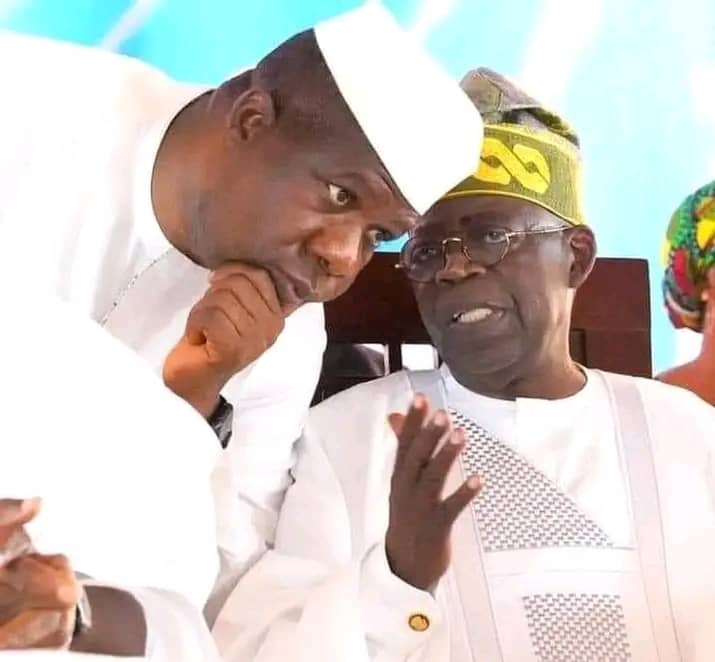
By Victor Alade
As the curtains draw close on the remarkable journey of the 9th Senate at the Nigeria National Assembly, it is only fitting to acknowledge the outstanding contributions and unwavering commitment of Senator Michael Opeyemi Bamidele to the success and growth of this distinguished assembly. Representing Ekiti Central Senatorial District, Senator Bamidele has been an integral part of the 9th Senate, leaving an indelible mark on the legislative landscape of our great nation.
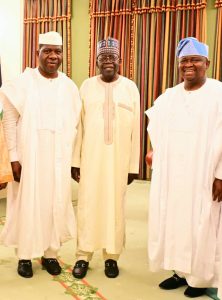
HITHERTO, MAKING THE SENATE WORK
When the 9th Senate was inaugurated, it faced an enormous task of overcoming the perception of being a “rubberstamp” to the Executive. However, Senator Bamidele, with his exceptional leadership and unwavering dedication, played a pivotal role in stabilizing, adding value, and legitimizing the Senate as an independent and effective arm of government.
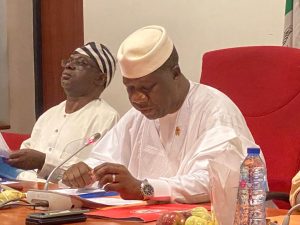
His immense contributions have been instrumental in transforming the Senate into a proactive and robust institution that diligently carried out its legislative duties.
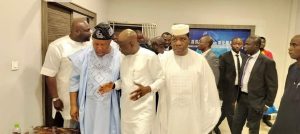
As the outgoing Chairman of the Senate Committee on Judiciary, Human Rights and Legal Matters, Senator Bamidele has played a critical role in advancing the cause of justice and human rights in Nigeria. He has also championed several bills that have had a direct impact on the lives of Nigerians, including the Whistle blower Protection Bill, the Family Support Trust Fund Act (Repeal and Re-enactment) Bill, and the National Human Rights Commission Act (Repeal and Re-enactment) Bill, among others.
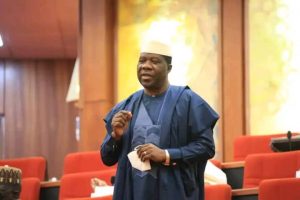
Senator Michael Opeyemi Bamidele
Senator Bamidele was instrumental in the passage of several other crucial bills that have impacted positively on the lives of Nigerians, including the Constitution of the Federal Republic of Nigeria, 1999 (Alteration) Bill, 2019, and has made significant contributions to other bills such as the Tertiary Education Trust Fund Act (Amendment) Bill, 2020.
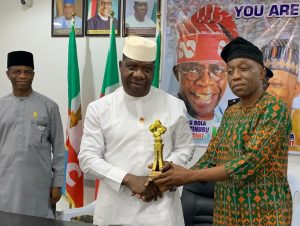
Senator Michael Opeyemi Bamidele receiving Award from Management of Progress FM Ado Ekiti led by the GM Oladokun Ladele
Throughout his tenure, Senator Bamidele displayed an unparalleled commitment to fostering good governance and accountability. His sponsorship and support of numerous bills, such as the Public Private Partnership Bill, 2021, demonstrated his unwavering resolve to drive economic growth, create employment opportunities, and enhance the welfare of Nigerians. His deep understanding of the legislative process and his ability to build consensus among his colleagues further solidified his reputation as a trusted and influential lawmaker.
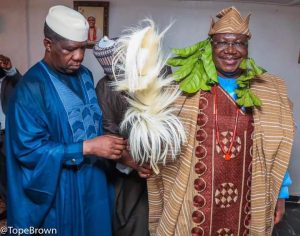
Senator Michael Opeyemi Bamidele and Senate President Ahmad Lawan
A BASTION OF HOPE FOR A NEW NIGERIA.
As we usher in the 10th Senate, Senator Michael Opeyemi Bamidele track record and experience make him a formidable force for progress and stability. His active involvement with the Stability Group, a coalition committed to promoting inclusivity and diversity in the Senate leadership, further underscores his dedication to ensuring balanced representation for all citizens.
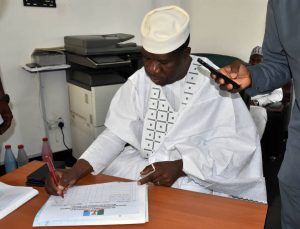
SenateSenator Michael Opeyemi Bamidele signing Documents at the APC Secretariat Abuja
With his vast knowledge, exceptional leadership acumen, and unwavering commitment to service, Senator Bamidele is poised to play a crucial role in the success of the incoming Senate. His ability to bridge divides, foster unity and promote good governance positions him as a beacon of hope in steering Nigeria towards a prosperous and inclusive future.
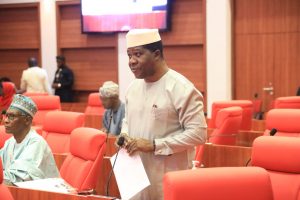
Senator Michael Opeyemi Bamidele
Beyond the walls of the Senate, Senator Bamidele has been a champion of youth empowerment and women’s rights. Through his various empowerment initiatives with which he provides scholarships to indigent students, he exemplifies his commitment to education and human capital development.
The Iyin Ekiti born Senator understands that investing in the youth is crucial to unlocking the potential of our great nation and creating a sustainable future.
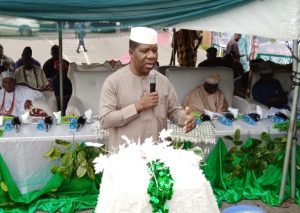
Senator Michael Opeyemi Bamidele at the Road commissioning ceremony
Senator Michael Opeyemi Bamidele’s illustrious contributions to the 9th Senate have been nothing short of remarkable. His unwavering dedication, progressive mindset, and commitment to the Nigerian people have left an indelible mark on the legislative landscape.

As the 10th Senate takes the reins, we have every confidence that Senator Bamidele’s visionary leadership will continue to inspire and drive positive change in Nigeria.
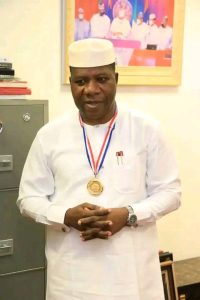
Let us celebrate Senator Michael Opeyemi Bamidele, a pillar of progress in the 9th Senate, and support his unwavering commitment to building a prosperous, inclusive, and united Nigeria.
-Victor Alade writes from Akure, Ondo State
Feature
Shock in Nasarawa Community As Dead Man Walks Out Of Casket At Point Of Burial
Published
2 years agoon
September 17, 2022By
News Editor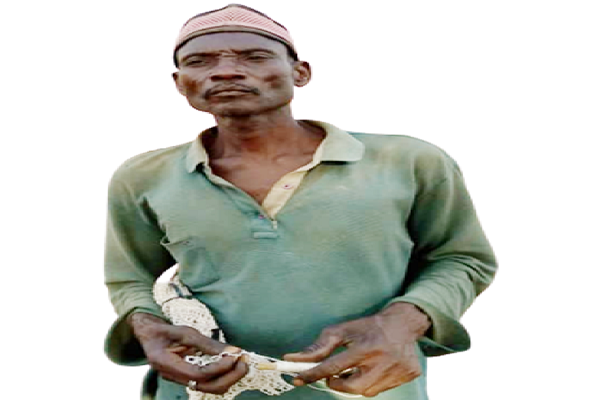
• Says I saw heaven, deceased childhood friends, ex-girlfriends
The Gidan Angalu community in Toto Local Government Area, Nasarawa State was thrown into shock penultimate Tuesday with the ‘resurrection’ of a native doctor at the point of burial two days after he was certified dead.
Fifty-nine-year-old Godwin Ugeelu Amadu had been confirmed dead by doctors at a private hospital at about 6 am on September 5, 2022, following which he was covered up and wheeled into the mortuary as doctors and family members awaited the arrival of his Abuja-based eldest son, Mr. Jacob Amadu.
Since the deceased native doctor was said to have left an instruction with his children that he must be buried not later than three days in the hospital before burial and he must not be embalmed with Formaline, arrangements were said to have been made for his burial two days later.
To the utter shock of Amadu’s children, relatives and sympathisers, however, the native doctor rose from the casket he was kept in as arrangements were being made to take his corpse to the graveyard, causing the crowd that had gathered for his burial to run in different directions.
The ‘resurrection’ of Amadu two days after his ‘death’ turned him into an overnight celebrity as people came from far and near to confirm what had happened.
Sharing his experience in an interview with our correspondent, Amadu, who said he has abandoned his career as a native doctor to become an evangelist, recalled that before his sickness and eventual ‘death’ on September 5, he had enjoyed good health and fully attended to patients who came from far distances to his village.
But sometime in July, he began to feel pains in his chest and legs. He said his legs were swollen and he tried treating himself as a native doctor but there appeared to be no improvement, prompting his two eldest children based in Abuja and one of his daughters based in Lafia to rush him to the Federal Medical Centre in Keffi.
At the hospital in Keffi, he was admitted for two weeks after which he was discharged and certified fit. But a week after he returned home, he developed severe chest pain.
He told his children who had gone back to their stations not to take him to the hospital again and also told them repeatedly not to keep his corpse longer than two or three days before burial.
With his condition getting worse, however, his children defied his instruction and returned him to a private hospital in a nearby community where he could get preliminary attention before he would be transferred to the Federal Medical Centre in Keffi where he had been treated before.
There, doctors battled to save his life before they thought he had given up the ghost and prepared him for burial.
Also speaking with our correspondent, the eldest son, Jacob, who said his father was declared dead while he was travelling from Abuja to see him on his sick bed in Nasarawa State, said: “I got to the hospital at about 10 am on September 5 and the mortician at the hospital wheeled out the trolley containing my father and unveiled his face for me to see, and it was indeed my father.”
“We advised the hospital not to embalm him because he actually told us repeatedly not to embalm him when he dies and to bury him immediately rather than keep his corpse inside a room.
“So we hurriedly left for the village to mobilise young men to help dig his grave so that we could bury him the second or third day as he had wished.
“On September 7, we brought his corpse to the village in a casket to bury him and sympathisers around the community were crying while others assembled in different locations discussing the sad event of his passing.
“While his body had been displayed in an open roof where he normally attended to his patients as a native doctor, the children brought the casket and put his body inside, preparatory for his burial, but he suddenly doctor rose from the casket.
“We were in the village when we suddenly saw the casket shaking and eventually fell and my father woke up to the surprised of many people in the village. A lot of the men and women who had gathered ran away, believing that it was his ghost.
“I summoned courage as a man to walk up to him and got a seat for him to sit on. He was not talking.
“I later held his hand and led him to the bathroom. He had a bath and after a few hours, he requested for food. He ate and then relaxed. “In the evening of the next day, he started talking a little and on the third day, he tried to narrate his experience.”
In an interview with our correspondent one week after he ‘resurrected’, Amadu said he could not fully recollect all that transpired during his struggles in the throes of death except that he was writhing in pains at one moment, felt relieved moments later and found himself in another world.
Amadu said: “I thank God that he has given me life again after tasting death. It is a miracle that God gave me a second chance and I think I will dedicate the days he has given me to live again to worship him and preach his gospel.
“My journey to heaven was a tranquil one. I feel very confused about what God has done to me. All I can remember for now is that I lost my memory when I was sick, but people later gathered in my village to mourn my passing.
“The cloud opened up and I saw something like a giant golden satellite suspended in space. I wouldn’t know whether this is what the bible calls heaven, but there I was greeted by a 75ft tall angel who stood in front of the gate.
“The angel had a beautiful sword and wore something like golden hair. As I looked round, I discovered that there were two other angels behind him holding pamphlets and books containing the words of God.
“The three angels had a brief discussion among themselves and later allowed me into the city of heaven.
“On entering the city, I met a childhood friend who died 22 years ago. His name was Choko Aguma. He was the one who took me round the city where everybody was committed to worshipping God
Source: Nation
Feature
The UK Barn and The Hypocrisy of Covid-19 Guidelines in Nigeria
Published
3 years agoon
December 11, 2021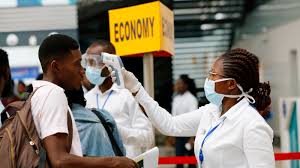
By Festus Fifen
Recently the United Kingdom in response to the global red alert on the omicron variant of Covid-19 placed Nigeria as part of the high risk countries which later metamorphose to flight restrictions from Nigeria and other selected African countries by some European countries. The United Kingdom over the years is a trusted partner as far as Nigeria is concerned. The flight restriction moves from some European countries especially the United Kingdom was perceived as unnecessary and discriminatory by a larger part of Nigerians home and abroad. No wonder the government through the honourable Minister of Information and culture Alhaji Lai Mohammed was very critical of the decision describing it as discriminatory and targeted at Nigerians for a virus that originated from China.
After about two days of the story making the rounds on different media platforms across the country, myself and the former Director General of the Nigeria Center for Disease Control, Professor, Abdulsalam Nasidi, (a professor of virology) were on a radio station in Abuja, analyzing the implications and the consequences of such action not forgetting the political and economic implications of the flight ban. I remember making a statement before we went on set and the professor agreed with me completely. And what was the statement? I told Prof. that the problem with us as a country is not the discrimination from the western countries. The problem with us is, over time, we don’t punish or let me put it this way, there are no consequences for misbehavior or flouting laydown rules and regulations as far as covid-19 regulation is concerned. This attitude over time paints a different picture about our core values as a country. This has even made countries in the world including some African countries cast aspersions on our personalities and the results that originate from our institutions of higher learning and even medical reports.
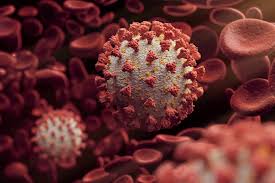
Now, that leads me to the topic of today, which I really want us to look at closely. While driving to the office this morning, there was this advert I heard through my radio set about a show that was coming up in Abuja the Nigeria Capital, I was trying to catch up with the headlines from the dailies and the adverts ended with “all COVID-19 protocols will be duly observed. I asked myself do we really talk about these COVID-19 principles and non-pharmaceutical guidelines because we want to obey them completely and diligently or we just mention it in public service announcement and advertisements so that people will know that we believe in the covid-19 protocols?
Let’s start from the government itself, I mean those people that are in charge of giving ‘us’ these rules and also in charge of implementation and enforcement
In the airports in Nigeria, after all the rigours of adhering strictly to COVID-19 protocols during the boarding process, you go into the aircraft to discover that you just wasted your time in a process that looks very much like a mere ritual. you are jam packed like sardines inside the plane. Without all the necessary precautions. That is a story for another day. I wouldn’t want to go there now.
Now you see senior government officials arranging or organizing events, they will go as far as announcing strictly by invitation and COVID-19 protocols will be followed and a few other things only for you to go there you realize that the lawmakers are actually the law breakers.
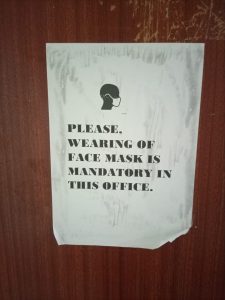 You will notice it’s a case of 49 sitting 99 standing (in the words of the legendary Fela Anikulapo Kuti). They don’t follow any of these non-pharmaceutical guidelines. You will still see people without facemask, no safe distance in the sitting arrangement and no proper coordination in crowd control. come back the next day you will hear COVID-19 protocols fully observed. In front or at the door of almost government office is the bold poster NO FACE MASK, NO ENTRY yet inside those offices are people that have thrown caution to the wind. At the entrance of shopping malls across the Nigerian Capital City Abuja you are forced to wear a face mask before entry, but as soon as you have access to the mall, everything returns to the pre-covid-19 era, same with Hotels and other public facilities and institutions. Let me not mention public transportation and taxis.
You will notice it’s a case of 49 sitting 99 standing (in the words of the legendary Fela Anikulapo Kuti). They don’t follow any of these non-pharmaceutical guidelines. You will still see people without facemask, no safe distance in the sitting arrangement and no proper coordination in crowd control. come back the next day you will hear COVID-19 protocols fully observed. In front or at the door of almost government office is the bold poster NO FACE MASK, NO ENTRY yet inside those offices are people that have thrown caution to the wind. At the entrance of shopping malls across the Nigerian Capital City Abuja you are forced to wear a face mask before entry, but as soon as you have access to the mall, everything returns to the pre-covid-19 era, same with Hotels and other public facilities and institutions. Let me not mention public transportation and taxis.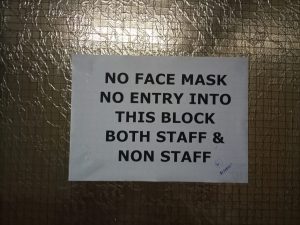
Who is deceiving us in this country? Why do we feel that the Foreigners, Diplomats I mean those who work in different high commission and embassies of other countries in Nigeria do not see how we throw caution to the wind in enforcement and implementation of protocols? Why do we feel that when it’s time to give updates about what is happening in Nigeria in the areas of compliance to Covid-19 guidelines they will not give their host country a true picture of what it is? Why do we feel that they (Foreigners) will follow us in our hypocrisy and make everybody believe we are following the guidelines?
Not too long ago stories about some travelers purchasing the vaccination certificate without taking the vaccine was played up by the media and till now no one person punished for doing that, we have also heard cases of health record officers inputting the wrong data for people and nothing has been seen to be done to those perpetrating such evil against humanity. The issues of “express” vaccination report given to international travelers at the airport is another can of worm we won’t open now.
The truth remains that as far as it is now, COVID-19 protocols and the announcement in Nigeria might just be a mere lip service. There are other areas that Nigeria can also look at as a country as far as this is concerned. The areas of the importance the government puts into the covid-19 fight. But we should ask ourselves who has bewitched us as a country?
My take is that the government should intensify efforts to make sure that the level of compliance is high, the high and mighty in the society should also be seen to follow the guidelines, this will go a long way in encouraging others to follow their footsteps. There should be more advocacy messages compared to the subtle threat that we have today in the system. Enforcers of covid-19 guidelines should spare no one in its enforcement approach. Everyone involved in the fight against Covid-19 should do what they are supposed to do, so that we overcome the hypocrisy of COVID-19 vaccines and we will be taken seriously by the international community. Thank you.
Latest News
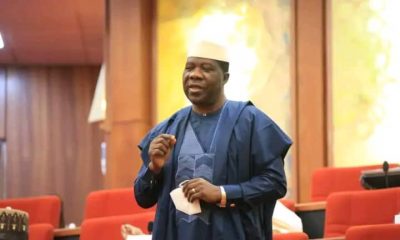

Economic Sabotage: Senate Invites NNPC, CBN, NIMASA, Dangote, Others for Questioning
Share*Investigates Billions Spent On Maintenance Of Nation’s Refineries *Beams Searchlight On NMDPRA Over Payment To Transporters *Reveals Plan To Visit...
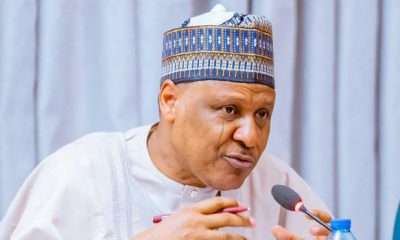

Hunger Protest: Information Minister Pleads For Time, Says FG Engaging Stakeholders
ShareAhead of the planned nationwide protest in August, the Minister for Information and National Orientation, Mohammed Idris, has appealed to...
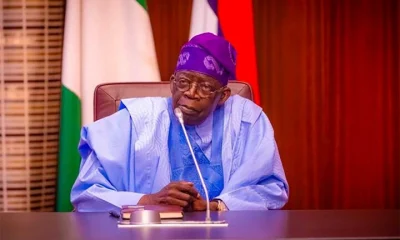

Tinubu Signs Bill Creating North-West, South-East Development Commissions.
SharePresident Bola Tinubu has assented to the North-West Development Commission (Establishment) Bill, 2024, and the South-East Development Commission (Establishment) Bill,...


Tinubu Orders Payment Of SSANU, NASU’s Withheld Salaries
Share President Bola Tinubu has directed the Ministers of Finance, Wale Edun, and Education, Prof Tahir Mamman to explore ways...
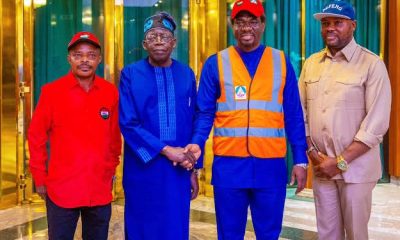

Minimum wage: Manufacturers Present Demands To Aid Compliance
ShareThe Manufacturers Association of Nigeria (MAN) has commended President Bola Tinubu for achieving the breakthrough on the long-awaited minimum wage...
